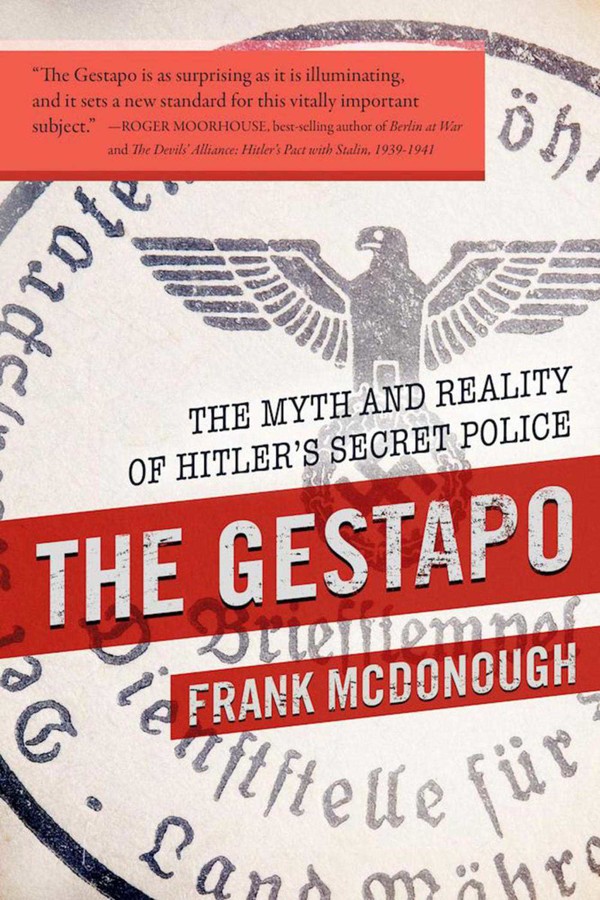
The Gestapo
The Myth and Reality of Hitler's Secret Police
کتاب های مرتبط
- اطلاعات
- نقد و بررسی
- دیدگاه کاربران
نقد و بررسی

December 15, 2016
A new look at Hitler's secret state police as a smaller crack force than is widely known, relying on the work of German citizen informers. A historian specializing in World War II and the Third Reich, McDonough (Sophie Scholl: Heroine of the German Resistance, 2009, etc.) offers a nuanced study of the Geheime Staatspolizei, or Gestapo, which by 1939 had merged the various police forces for Nazi Germany and was empowered with rooting out subversive and "anti-social" elements. The author reminds us that the galvanizing force in the initial creation of the Gestapo was Hitler's need to suppress forces of communism in the government, and four key figures would achieve control over all of the security services: Hermann Goring and Rudolf Diels in Prussia and Heinrich Himmler and Reinhard Heydrich in Bavaria. McDonough delineates how the "Night of the Long Knives" of June 30, 1934, brutally eliminated any opposition to the Gestapo, including the murder of Ernst Rohm, leader of the storm troopers. Under the directorship of Heinrich Muller, the Gestapo proceeded with lethal efficiency, enlisting for its officers the most educated men, such as law graduates, and offering quick promotion of young people, which "gave the regime its energetic radicalism." The rank-and-file members were lower-class career policemen and not necessarily avid members of the Nazi Party. After sketching the makeup of the organization, the author then delves into the victims of the secret police force who posed a danger to the state and its increasingly draconian racial laws. The victims included religious objectors, mostly Catholics and Jehovah's Witnesses (Protestants and Evangelicals tended to be pro-Nazi); communists, who had been the passionate voice of the German industrial working class in the Weimar era; "social outsiders" such as criminals and homosexuals; and such "racial enemies" as Gypsies and Jews. McDonough devotes an entire chilling chapter to the makeup of the informers, who were mostly middle- and upper-class citizens. A well-researched book that clarifies many misconceptions.
COPYRIGHT(2016) Kirkus Reviews, ALL RIGHTS RESERVED.

























دیدگاه کاربران